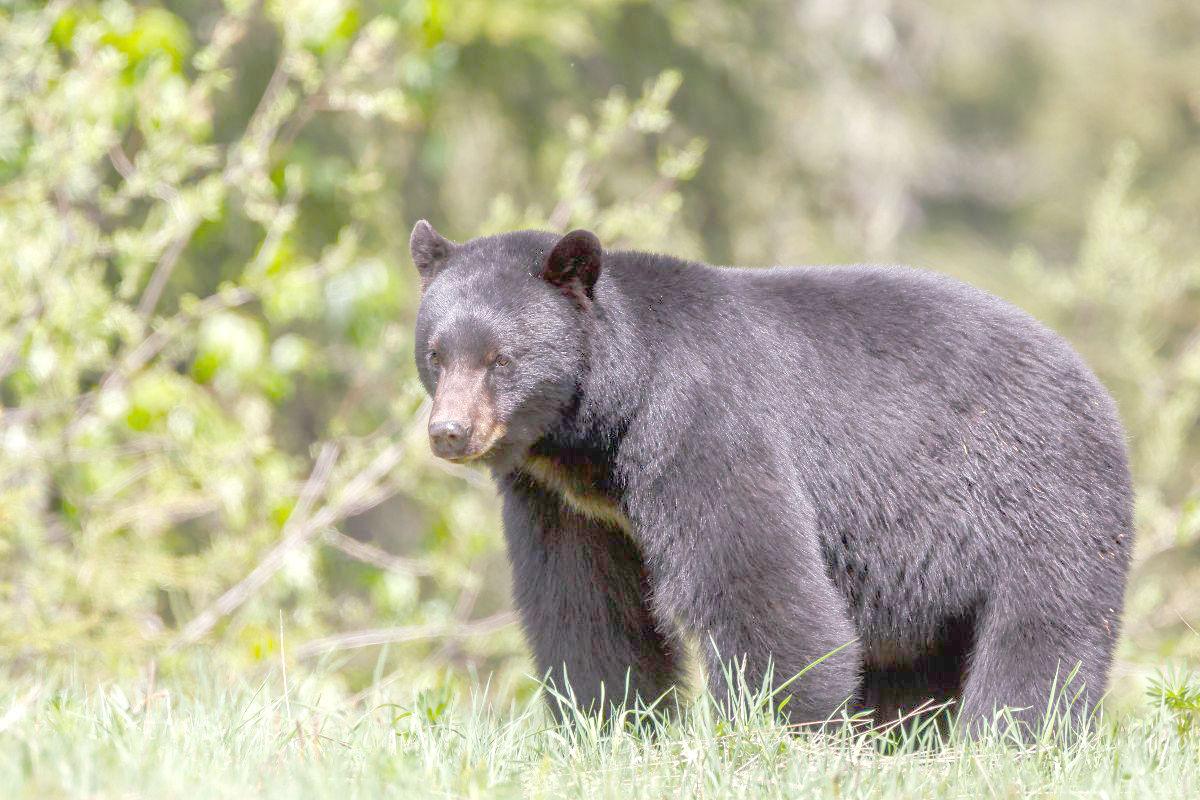COMMENTARY BY DR. DAVE SAMUEL | FOR THE DOMINION POST
Black bear numbers have increased in almost every state east of the Mississippi. Those increases necessitate management so that too many bears don’t impact humans. Hunters love the increase. Bird feeders aren’t so sure. Too many bears do lead to damage of various kinds, and safety in urban areas is also a concern.
The history of bear hunting in New Jersey is long and political. Once legalized in 2003, anti-hunters entered various lawsuits that stopped the hunts over ensuing years. During that time, in 2014, a Rutgers student was killed by a bear. He and three friends met two hikers leaving a nature preserve and were warned not to enter the area as there was a bear nearby. The four hikers went in anyway and one took pictures of the bear. The bear attacked and the hikers scattered. When they reconvened at the entrance, one hiker was missing. He was found dead two hours later and the problem bear killed by officials found human remains in the stomach. This is the only bear fatality ever recorded in New Jersey.
In 2016, a woman walking her dog was attacked by a sow with three cubs. The incident took place just 40 miles from New York City.
State game agencies manage the bears, but what they can do is mandated by state wildlife commissions and/or the state legislature. Yes, politics takes precedent over biology in some states, and that is now happening in New Jersey. Gov. Phil Murphy is an outspoken anti-hunter. The bear season is a rather short bowhunt in October and a short bow and muzzleloader hunt in December. Safety is an issue because New Jersey has over 1,000 people per square mile. Thus, hunting areas are limited. State lands make up 40% of the bear-hunted areas. Private lands make up the rest.
In 2018, the governor tried to stop bear hunting statewide but settled for a ban on state property (state game lands) using an Executive Order to do so. This, even though bear numbers were increasing and the state wildlife agency opposed the action. As predicted, the stoppage on state lands resulted in human/bear conflicts sky-rocketing as bear numbers increased even more. One highly publicized example took place in 2019 when a man took his dog for a walk and left the garage door open. When he returned, a bear was in the garage and attacked him. He survived, but the publicity was extensive.
The state wildlife agency maintains data on bear problems. Apparently stopping bear hunting on state lands has had an impact. In 2019, there were 509 damage and nuisance complaints in the state. As of Sept. 21, 2020, there have been 811 complaints. In 2019 there were 166 garbage incidences, and 192 so far this year. In 2019, there were four bird feeder incidents; this year there have been 22. Overall, bear incidents of all kinds totaled 643 in 2019, and that has jumped to 1,073 this year, so far. From these data, it appears that some further bear control is in order.
Even so, the governor persisted and there is now an amendment to the Game Code that would halt the bear hunt for 2021. That amendment would remove the current Comprehensive Black Bear Management Policy that’s been in the Game Code since 2015.
New Jersey hunters believe that only the state game commission (known as the New Jersey Fish and Game Council) can stop the hunt. But as noted above, the state legislature can also do that. The governor feels that stopping the hunt would give the Department of Environmental Protection (the state wildlife agency in housed in this agency) a chance to study the scientific literature on non-lethal methods to reduce damage complaints and curb the bear numbers. The governor needs to look at the history and evolution of the bear hunt in New Jersey. In fact, he needs to read the Black Bear Management Plan done by the state wildlife agency and approved by the Fish and Game Council in 2015. That plan shows the science the governor wants to see. The plan has already done what the governor now wants to do.
Senseless.
Lots of ideas have been tested to reduce damage and promote public safety. Mandating the use of garbage cans that are bear-resistant, is one of many failed options already tried. Non-lethal efforts were tried in New Jersey starting in 1970, and the bear numbers continued to grow and citizen complaints did, too.
I have no idea how you can lower bear numbers or keep them stable without hunting. And no, chemosterilants won’t work. The practicality of trying to find and dart female bears between the times they are impregnated in June until they give birth in hibernation in mid-January would be impossible.
The governor also wants to make sure the public is safe during the hunting season. Interestingly, there have been no hunting accidents since 2003 when the hunts started. Sounds fairly safe. It will be interesting to see how this all plays out. The governor’s term ends in 2022, and if he has his way and stops bear hunting in 2021, the new governor will have his/her hands full with even more bear problems than this governor has created.
Can you imagine the bear problems we’d have in West Virginia if the governor somehow was able to eliminate the bear season?
Dr. Samuel is a retired wildlife professor from West Virginia University. His outdoor columns have appeared, and continue to appear, in Bowhunter magazine and the Whitetail Journal. If you have questions or comments on wildlife and conservation issues, email him at drdave4@comcast.net.




